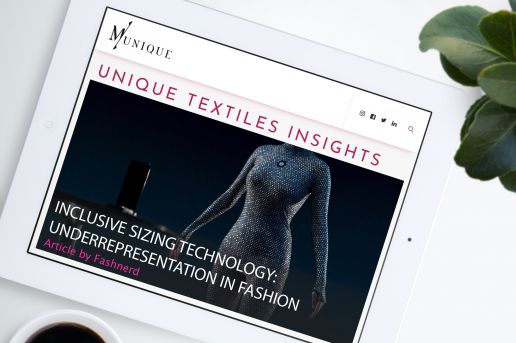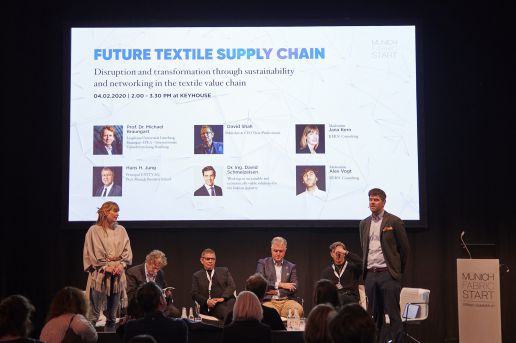Keyhouse
Inclusive Sizing Technology
Inclusive Sizing Technology, Helping the Fashion Industry Represent the Underserved
AN INDUSTRY INSIGHT BY FASHNERD FOUNDER MUCHANETA KAPFUNDE.
With as many unique sizes as there are people on the planet, does it make good business sense for the fashion industry to continue to mass-produce 3 or 4 standard sizes? Yes, it is cost-saving, but with the new wave of body positivity breaking the sizing mould of yesteryear, maybe the time has come to move with the times. It is a positive thing to see the movement forcing fashion brands and retailers to turn to technology to meet most body shape needs and offer more than just standard basic styles.
Sizing Technologies, Worth the Investment?
Inclusive sizing technology is nothing new. Several solutions have been trying to correct the distorted and outdated image-standard designed to exclude plus-size consumers for a while now. Most famously was the ZOZOSUIT, a skin-hugging, high-tech bodysuit created to help shoppers purchase clothes, guaranteed the perfect fit every time. Now fast forward to 2021, and although sizing technology has advanced even further, shoppers are still struggling with common-fit issues. This begs the question, can fit technology fix fashions biggest demons, sizing and fit?
According to Narvar Inc, size and fit are among the top reasons customers return online orders. The e-commerce software company believes that this obstacle “further erodes retailers’ already thin profit margins”. Although it is a complicated problem, sizing technologies that offer a solution are being communicated to fashion businesses. One of those is 3D technology.
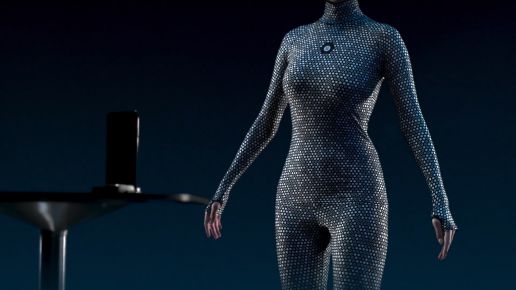
Revolutionising the fashion industry one label at a time, 3D technology is capable of helping fashion brands understand their consumer’s body shape so they can develop more accurate garments. One of those startups offering this type of innovation is CLO. On a mission to help the industry understand how ‘fit can build loyalty to a brand’, CLO 3D Simulation software feature allows brands to solve the question mark of their customer’s shape. Primarily built for cut-and-sew garments, CLO brags features like an API that enables customers to input their measurements to receive fit maps and view draped garments.
Fit Analytics is another solution. It is a technology that provides a “Fit Score” generated by response comparisons. CEO of Fit Analytics Sebastian Schulze believes that fashion brands cannot simply scale existing apparel specifications to create plus-size garments; they need fit technology to help them empower consumers and fix a decades-old problem.

Also worthy of mention is the digital fit solution app MySizeID. The direct to retailer technology helps consumers assess a garment’s sizing. Denim brand Boyish Jeans partnered up with MySize and saw a reduction of more than 30 per cent in two months. How? Well, the app’s AI-driven technology works by analysing user-entered data, like weight, gender or height, and then MySize’s proprietary machine learning database calculates the appropriate size. On their technology, Ronen Luzon, MySize CEO and founder told Sourcing Journal:
“Our app was designed specifically to take the guesswork out of sizing and make things as convenient as possible for online shoppers, so enabling customers to utilise our sizing recommendations and navigate directly from our app to retailers’ sites is a natural step for us when it comes to working directly with the consumer”.
Looking ahead, MySize is hoping to offer the same solution it does to the apparel industry to the footwear industry.

Yes, Fit Technology Has Gone Mainstream
When Lizzo, Ashley Graham and Meghan Trainor brought the inclusive sizing movement to the mainstream, fashion brands began to understand that they were walking away from profit by underserving a specific demographic. One of those brands was ASOS. Last year, in 2020, the British online fashion and cosmetic retailer trialed an augmented reality tool in collaboration with Israeli augmented reality (AR) company Zeekit to expand their offerings. “See My Fit” allowed ASOS customers to view 800 dresses on 16 different models, sizes 4 to 18, which heralding the online retailer as being at the forefront of fashion inclusivity. When released, Tim Carey, senior content manager at ASOS Studios, told NBC News:
“With this trial of See My Fit, we’re using the latest in AR technology to put the power in our customers’ hands, so they can choose to view a dress on the model that they most identify with, in a way that wouldn’t be possible using traditional model-shooting techniques.”

Then there is Vero Moda, a fashion brand that worked with Presize. It is a fit solution that can be integrated with zero IT capacity. After applying the technology to its online store, the fashion brand saw an increase in its online revenue.
When it comes to reliability, Presize states on their website that a study conducted with 255 participants found that the startup showed greater body measurement accuracy for 90% of all subjects and scored a mean average error 55% lower than that of the second most accurate solution in the benchmarking.
Empowering fashion brands to offer a more personalised sizing experience is ZyseMe, a Germany based startup driven by a desire never to allow customers to compromise on fit. It is a solution that has been successfully cutting overproduction, waste and returns. In 2021 they partnered up with H&M. Together, the two companies offered on-demand production of men’s shirts with H&M LAB. Using AI algorithms, they generated a unique pattern for a shirt produced on demand and sent directly to the consumer. ZyseMe is now expanding to partner with several other retailers and brands.
Finding The Perfect Fit, A Sign of Changing Times
Doesn’t it make good business sense for fashion brands in this challenging market to not alienate the next generation of consumers? Fit-related innovation has proved to be the best way to meet the demand for size “ideals’ that do not skew towards smaller products while also fighting the growing number of returns and unnecessary overproduction.
Yes, fit technology might not have cracked the code to the perfect fit, but you should believe the hype because as the technology evolves, it is coming closer to promising “perfection and personalisation” than ever before. Acknowledging the existence of inclusive sizing solutions is no longer enough; adopting, adapting and executing them is.
ABOUT THE AUTHOR
Founding editor-in-chief of FashNerd.com, Muchaneta has worked in the fashion industry for over 14 years. She is currently one of the leading influencers speaking and writing about the merger of fashion with technology and wearable technology.
Muchaneta Kapfunde | editor@fashnerd.com
Towards 3D Digital Innovation
3D Digital Innovation: Transitioning From Physical to Digital
AN INDUSTRY INSIGHT BY FASHNERD FOUNDER MUCHANETA KAPFUNDE.
As business practices in various sectors adjust to accommodate digital innovation, the textile industry has also started to shift direction. Driven by the growing need to rethink the industry’s approach to design, development and manufacturing, the textile business has finally started to turn to digital technology to help solve some of its industry-specific difficulties and complexities.
Under pressure to innovate, I am excited to witness 3D digitalisation finally taking centre stage in the textile industry. Propelled forward by the brand-new digital wave, textile businesses are setting new standards to future-proof the sector. Rethinking how they operate, more and more textile businesses are becoming less afraid to explore the benefits of transitioning from physical to digital. The majority are doing this by examining the advantages of merging textiles with digital experimentation. So, what exactly is 3D digital technology offering an industry notorious for being resistant to change?
The Digitisation of Fabrics, A Powerful Asset?
Modern technologies are proving to be an influential asset when it comes to playing an integral part in changing the dynamics of the textile industry. With the potential to give textile businesses a competitive edge, we are starting to see 3D digital innovations being highlighted at textile trade shows, which, in my opinion, is a step in the right direction.
This is an opinion formed while frequenting various textile trade shows. As a regular visitor I am familiar with physical swatches. Now imagine if I, as a visitor (or customer), could access the digital twin of a piece of fabric along with its physical swatches. This concept was introduced at Munich Fabric Start (MFS) trade show during their 2019 edition of KEYHOUSE.
The Munich based trade show showcased fabric suppliers offering a digital twin alongside physical swatches. Partnering up with Digital Fabric Lab, they demonstrated the individual steps of fabric digitisation and how textile businesses can create a realistic image of digital fabric samples. The key takeaway was that physical no longer needs to be the master copy. More recently, in 2021, MFS invited attendees to indulge in 3D digital fabrics and trend inspirations showcased at their DIGITAL TREND SPACE.
PHYSICAL NO LONGER NEEDS TO BE THE MASTER COPY
Another digital platform making it possible to digitise fabric is Esmetex. “We aim to simplify the fabric development process; no more looking through swatch boxes and shipping swatches back and forth“, said the founder of Esmetex, Victor Chao, to Apparelresources.com. Adding:
“It is not practical for a designer to search through 18,000 fabric swatches when Frontier® can search based on whatever criteria the user is interested in and return all relevant fabric information on one page. This can be done on a desktop, laptop, tablet or smartphone by accessing our website or by installing our app.”
Chao is not alone in trying to help the textile industry move with the times. Emily Croneberger, manager marketing and industry programs, Cotton Inc, said in an interview:
“Digitising the fabrics is our first step in keeping cotton in a digital landscape”. She continued: “We have committed to creating an online digital library of our fabrics, free for download and use by brands, mills and accounts. We plan to move forward in promoting and expanding our digital assets.”
Although it is unlikely that physical samples will become a thing of the past anytime soon, the digital twin of fabric offers some advantages, like storing all fabric data in one central place. It is also worth taking note that solutions offered by digital material platforms like Swatchbook, also make it easier to verify the physical textiles’ authentication. For those attending shows, this type of tech solution makes viewing the fabrics more effortless while helping textile businesses be less wasteful when it comes to physical material samples and swatches.
The Wonder Of Digitally Transformed Fabric
As industries transform to meet global changes, we have seen a rise in the adoption of newly emerging technologies. It is these genius ideas that have allowed the textile industry to take material digitisation to the next level. By hybridising the physical world with the digital one, textile companies that once relied on physical meetings at trade shows are now turning to innovative textile technologies to help them digitally transform their fabric during the global pandemic. One of these solutions is Scanatic™ Nuno Fabric Scanner provided by tg3ds.
Digitally powering the textile industry, the tg3ds studio uses an intelligent imagery processing engine to capture 3D texture display properties of fabrics in the smallest digital footprints. Another solution provider is Twinbru. They have made a name for themselves by setting an industry standard when it comes to making it possible for digital fabrics to be used in all virtual settings, like AR, VR and even game design.
Ready for Limitless Possibilities?
When the world of “all things digital” merges with one of the oldest industries, you know it’s time to stand up and take notice. If you are a fabric mill, a garment manufacturer, or a textile brand, now is the time to leave outdated methods behind and transition your product from physical to digital. For example with help from companies like CLO Virtual Fashion, who can accurately emulate drape-sensitive fabrics such as lightweight wovens and jerseys with various material properties, more on this here. Yes, there are still imperfect kinks to the technology, like not being able to mimic complex behaviour of materials, but that does not make innovations like 3D Digital plan B; it should always be ‘the plan’.
So why embrace digital transformation? If you want to become faster, more relevant and more cost-efficient, now is the time to capitalise on all the possibilities that digitalisation offers. Yes, some might argue that the technology is not industry-ready enough to replace physical samples with virtual ones, but we can all agree that a new textiles economy is arising, and it makes sense to be a part of it.

ABOUT THE AUTHOR
Founding editor-in-chief of FashNerd.com, Muchaneta has worked in the fashion industry for over 14 years. She is currently one of the leading influencers speaking and writing about the merger of fashion with technology and wearable technology.
Muchaneta Kapfunde | editor@fashnerd.com
The Power of Headless Commerce
Why Fashion Businesses Should Harness the Power of Headless Commerce
ARTICLE BY MUCHANETA KAPFUNDE, FOUNDING EDITOR-IN-CHIEF FASHNERD.COM
In today’s world, it is hard for any industry to ignore the explosion of innovation, let alone the growth of its adoption. Even the fashion industry, which has always been hesitant to invest, started in 2020 to seriously take note when it became apparent that the fashion industry’s overall health was now reliant on its ability to adapt to new ways of doing business. Switching to survival mode, brands and retailers, especially those who have been dealt a tough hand due to the pandemic, started diving into innovations designed to get them back on track. One of these best-in-class technologies is headless commerce.
Born from what RetailDive described as “retailers’ struggle to create an online purchasing experience that was consistent with the slick marketing customers were used to seeing”, headless commerce has been proving to be more than just another buzzword. Although it has been acknowledged by luxury labels like Lancome and Michael Kors, who are using the solution to run their eCommerce stores, the question remains, what is headless commerce?
The Rise of Headless Commerce
For some businesses, it was the enforced disruption of 2020 that brought headless commerce to their attention. If you are hoping to take advantage of what headless commerce can bring to the table, you need first to understand what the solution is. The idea behind Headless is pretty simple. It is the decoupling of the front-end and the back-end of a brand’s e-commerce solution. The front-end is what your customers see when they are interacting with your store. The back-end, which is responsible for all of the functionality, is what the customer never sees.
Now, most e-commerce solutions have their back-end and front-end coupled, which means that any changes requiring a developer to configure code to account for those changes – turning a small project into a big one; and this is when headless commerce comes in. Shaneil Lafayette, Commerce Technology Advocate and Data Analyst, explains: “Headless commerce is a solution that allows you to innovate and add new customer touchpoints without ever having to worry about messing about functionality in expectations”. Adding: “You can add new and personalised commerce experiences to keep up with customer expectations”.
Not an entirely new approach, Nacelle, a company that helps businesses create next-gen web stores by offering headless functionality as a solution, defines headless commerce as an innovation that allows retailers to scale their e-commerce business. More technically, headless commerce is “the decoupling of a website’s front-end from the back-end and implementing an API architecture that enables making fluid changes to the site’s content and user interface elements without affecting the back-end”, according to Algolia, a search-as-a-service platform.
Although brands like Oliver Bonas, Etsy, J.Crew, and ASOS are adopting headless solutions, some brands and retailers are still trying to understand why this ‘future-proof’ package is on the rise. One argument offered by ‘Content And Commerce: The Odd Couple Or The Power Couple?’ authors Stephen Powers and Peter Sheldon is: “It is no longer enough to enable an online catalogue and transactional e-commerce.” A valid point. So taking it one step at a time, to understand why headless is on the rise, I think one needs first to understand the difference between traditional commerce and headless commerce.
Traditional Versus Headless
Before pointing out the difference between traditional or headless, allow me first to say, although headless commerce has its advantages, traditional e-commerce website solutions are always great for those starting or those looking for an easy setup that requires less financial investment. But if you are past that stage and want to take the next step, then headless commerce could be the progressive solution that makes it easier for your business to present experiences and test new strategies.
Let’s start with the front-end. It has been said that when it comes to the front-end, traditional commerce platforms have a reputation for having design constraints that limit developers. This hindrance is usually not experienced in headless commerce. That is not to say that headless commerce doesn’t come with its drawbacks, it does, but with perks that include advantages that enable front-end developers to create, from scratch, a user experience that fits core business needs, the benefits currently outweigh its limitations.
When it comes to customisation, the traditional commerce platform affords limited personalisation, while headless platforms offer developers the opportunity to create their own user experience. By this, I mean that headless commerce is built for customisation, which means that it is a solution that makes it easier for you to rearrange your store or change content as and when you need to.
Ready To Be Free From Traditional Shackles?
Joe Cicman, a Forrester Senior Analyst, once said: “If you rewind the clock to the pre-headless days, you could spend millions of dollars figuring this stuff out for yourself”. The good news is that experts at Amplience have come up with a playbook that offers fashion businesses an opportunity to break down traditional barriers. Supporting headless commerce as an innovative solution, Amplience’s playbook explains the whys, what’s, and how to go headless.
Still wondering if you should get in on the action? Let’s go through some advantages of adopting this modern commerce architecture. It is a solution that gives you the ability to deploy, scale and provide an accurate omnichannel approach. As Harvard Business Review research revealed, this is important because omnichannel customers spend 4% more in-store and 10% more online than single-channel customers. Also that 73% of consumers use more than one channel during their shopping journey.
Another advantage of going down the headless route is the faster speed to market aspect, a must in an industry that thrives on speed and agility. Also, headless commerce can help brands adapt quickly to market changes and implement recent UX changes, like adding new functionality without changing the back-end logic.
Lastly, the most significant advantage has to be headless commerce’s ability to make it possible to build a store that is tailored to a fashion business’ needs. Imagine being able to create an all-in-one-platform that is not a clunky and outdated operation but a seamless system that ticks all your boxes and allows your customers to experience your brand’s overall aesthetic with ease.
Let's Talk Challenges & Whether Headless Is a Best-of-Breed Solution for You
Considering some experts to be a long-overdue upgrade, should you decide to join the headless tribe, you won’t be alone. As I mentioned earlier, Michael Kors shifted to a headless architecture in 2016. The benefits for the American fashion label include streamlining their efforts to engage with mobile users. Also, in 2016 French luxury perfumes and cosmetics house Lancôme transitioned to headless to capitalise on its increased mobile traffic. Following their evolution, Lancôme reported a 36% lift in mobile revenue and an average order value increase of 11%.
Like any emerging innovation, headless commerce comes with limitations. Not a quick solution for every retailer, headless commerce’s initial build costs and times can be relatively high, not to mention the ongoing costs. This is probably why larger organisations have mainly adopted headless commerce with the resources to commit to it. Some smaller businesses have taken a step towards going headless because, in the long run, they are looking at the bigger picture and thinking long term when it comes to their expectations of ROI.
In the end, yes, headless unlocks opportunities, but it is not suitable for everyone. It is a solution that offers excellent benefits if you are looking to bring specific traits to your overall business approach. Still, before you commit, you need to ask yourself, do I want to increase conversions? With mobile-first on the rise, is now the time to optimise my store for mobile shopping experiences? Are modern tools the way forward for my business? If you answered yes to all three questions, then headless could be the solution to help you to scale up and grow faster. Solutions like Mobify, Prismic, Algolia, Magento 2, Shopify Plus and Core DNA could help you make the switch in gradual increments.
So as we propel towards a new retail age in 2021, the fashion industry has started to realise that the road back to “normality” is paved with complex and sometimes intimidating innovation. Joining the dots between digital and physical not only opens the industry to viable solutions that reduce the impact caused by COVID-19, but it is technologies like headless commerce that will help fashion brands and retailers grab a more significant piece of valuable market share that will allow them to thrive post-pandemic.

ABOUT THE AUTHOR
Founding editor-in-chief of FashNerd.com, Muchaneta has worked in the fashion industry for over 14 years. She is currently one of the leading influencers speaking and writing about the merger of fashion with technology and wearable technology.
Muchaneta Kapfunde | editor@fashnerd.com
Why It's Time For A Digital Intervention
Why It's Time For A Digital Intervention
ARTICLE BY MUCHANETA KAPFUNDE, FOUNDING EDITOR-IN-CHIEF FASHNERD.COM
In an increasingly digitised world, the present-day landscape for fashion businesses is changing. The technology tinkerers and digital blacksmiths are challenging the traditional way of designing. Digital activity is no longer just focused on sales; instead, there is a new digital approach transforming existing design practices. Reimagining the process of designing, creating and showing garments, digital tools are arming designers and brands with technology created to eliminate the manual steps usually taken in the traditional fashion design cycle.
A Digital Approach To Garment Creation
With optimism towards technology growing, more brands are becoming open to adopting new business models and beginning to find their footing in the digital economy. As we enter 2021, more fashion designers are starting to understand why digitally managing the back end of their business is essential which has meant that we are hearing less of “We know digital is important, but…”. Through digital intervention, fashion businesses are not only altering how they operate day-to-day, they are also taking a step back and thinking about how digital tools could add value to their business.
Moving towards a more digital model presents exciting opportunities, especially for fashion houses, grappling with how to move forward post-pandemic. Created to enhance what we want to achieve long term, committing to the digital process will not only eliminate multiple rounds of pattern-making and model fittings; it will also allow fashion brands to identify and unlock opportunities. Yes, going digital can come with a few uncertainties, but with everything going on, there has never been a more perfect moment to change your internal mindset.
Be Inspired To Innovate and Push the Boundaries
Taking a visionary approach is founder of fashion magazine More or Less, Jaime Perlman. Last year the former Vogue UK creative director teamed up with Microsoft to launch ‘Augmented Atelier‘. The partnership was designed to advocate new tools for an alternative take on design. “It’s really about using technology as a form of imagination and how that reacts with the real world in a physical space. It’s about using technology to innovate and push the boundaries of what fashion can mean,” explained Jaime Perlman on the Microsoft.com blog.
Harnessing the capabilities of Microsoft Azure Spatial Anchors, Pearlman is not defying traditional methods independently; she has Bethany Williams, Phoebe English, Fredrik Tjærandsen, and Rottingdean Bazaar as part of her tribe. Working together, they have been busy bringing forward tools that offer the kind of solutions that bring sustainability, innovation and imagination to the forefront of the industry.
Defining Your Place In The Digital Economy
Streamlining the design process, pushing boundaries and reshaping attitudes, taking a digital approach to garment creation is not a radical choice but a necessary one. Although the digital journey can be challenging, more and more innovative tools are growing in prominence and being introduced to the industry. It is these tools that are giving fashion brands a better understanding of the opportunities that they present. Yes, digital technology is making it easier for fashion businesses to move towards a more digital model, but the question now is, are you, as a business, ready to embrace the change taking place in the industry?
With startup designers leading the way and defining their place in the digital economy, some still hesitate. If you are unsure if digital tools are the way forward, imagine this, having the ability to transfer real-life fabrics to your design. The good news is that you do not have to imagine anymore, thanks to The Scanatic™ Nuno3D Service. Digitally empowering fashion, the company offers a solution that allows for realistic fabric visualisation by rendering the fabric scan in the most true-to-life. It is an invention that enables designers to import different texture maps, like knitted fabrics, woven fabrics, synthetic fabrics etc.
Then there is CLO. Promising to revolutionise the design process by combating inefficiencies within the fashion industry, CLO is a software that can transform a brands workflow. With CLO, brands could bring their business presence to the next level. Offering true-to-life 3D garment simulation, CLO addresses today’s challenges by providing an efficient 3D design process. By guiding the fashion industry towards a future where designers can seamlessly integrate 3D into their operation, CLO makes it possible to virtualise a garment and transform a designer’s entire workflow.
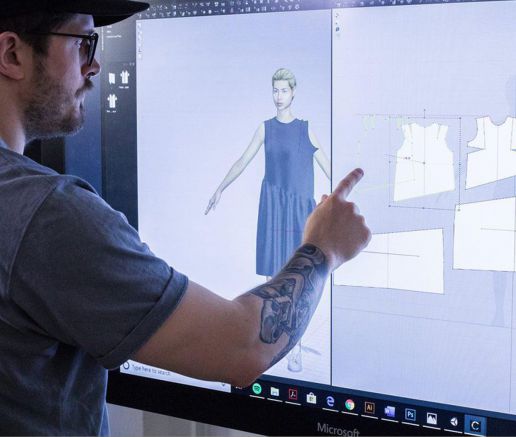
A firm favourite is TUKATECH. The software company has two digital fashion products, TUKAcad and TUKA3D. Created for designers looking to streamline their production process, the software eliminates the need for physical samples and makes it possible to create life-like digital collections. One of the critical features of TUKA3D is that it includes 3D virtual sampling in 5 visual ways, real-life virtual fit sessions and fabric and trims library.
Last but not least is Virtuality.Fashion. Driven to bring your fashion ideas to life, the company has made sharing creations virtually without sending physical samples easy breezy. Powered by C-Design, the collaborative platform makes sharing and collaborating with potential buyers or internally much more straightforward.
Digital Tools, The Ultimate Must-Have?
Presenting new opportunities for an industry that needs to change – digital tools are becoming the ultimate must-have for fashion businesses ready to transform existing design practices. More affordable than ever before, the good news is that the adoption of full-fledged digital solutions has gone from pleasant to have, to need to have. As we enter 2021, the fashion brands that are taking this positive step in the chaotic upside-down world we are currently doing business in are most likely going to be around for the long run, and for those who are reluctant to adopt digital tools, some experts predict that soon it will be too late.
Release of the new CLO version 6.0
Our KEYHOUSE stands for innovation, trend development and digital pioneering. CLO Virtual Fashion was one of the futuristic exhibitors that presented their revolutionary developments in KEYHOUSE last February: the 3D visualisation of clothing.
CLO Virtual Fashion is a leading global provider of 3D simulation technologies for the clothing sector. The company looks back on over ten years of experience in research and development in the field of clothing simulation and sees its technology not only as a tool for developing virtual garments, but also as a platform to provide valuable data about clothing, designs and trends with the help of garment visualisations. CLO Virtual Fashion is an international company with offices in New York, Munich, Seoul, Shanghai, Hong Kong and Bangalore.
Release of the new version 6.0
What we are particularly proud of: The innovative strength of our KEYHOUSE exhibitors cannot be stunted even by the challenges of a pandemic. We are therefore pleased to introduce you to the latest version 6.0 of CLO:
With the release of version 6.0, CLO has made the 3D design process faster, more accurate, more user friendly, more efficient and more seamless. With 6.0, CLO offers an incomparable solution for integrating a seamless digital end-to-end workflow. With the new cutting-edge features, designers can create virtual garments like never before.
One of the most revolutionary features of this version is Auto Sewing – which is exclusively available at CLO 6.0. This enables users to automatically sew their garments with just one click, which further shortens lead times. Other innovative new functions are also: Automatic Grading, whereby the cutting patterns can be adjusted based on the body shape and not just using the parametric size table. Grading Review enables users to check sizes at a glance. Pattern nesting minimizes fabric consumption for more efficient production and PBR format, which enables highly realistic fabric visualisation.
Key Features of CLO 6.0
- Grading Review:Compare garment and/or avatar grading in a single window.
- Auto Sewing: Patterns are automatically sewn based on their placement on avatars.
- Texture Editor:Express complex graphics by overlaying multiple images. When images repeat, create seamless graphics by editing their outlines while referring to the preview.
- Print on Fabric: Print various patterns on fabric.
- Render | Subsurface Scattering Material: Realistically express human skin. Subsurface scattering material penetrates and scatters under the objects’ surface. Utilise the material to illustrate leaves, fruit, candles and more.
- Automatic Rigging & Converter: Add joints or convert user data to CLO avatars and use CLO Avatar Editor.
- Schematic Rendering Style for Tech Pack: Render 3D garments into technical drawings for Tech Pack.
- UV Editor Mode:Create UV maps of patterns, buttons and zippers as well as create normal, rough and metallic alpha maps.

3 new integration partners for CLO 6.0
Besides the updates of the key features, CLO 6.0 also convinces thanks to three new integration partners: Jeanologia, Substance and ColorDigital.
CLO Virtual Fashion has partnered with Substance by Adobe, tool to creat 3D textures, Jeanologia, the Spain based company specialising in finishing technology solutions for denim and ColorDigital, pioneer in uniform and efficient colour and surface communication, for the release of CLO 6.0. These exciting integrations allow brands and designers to achieve a desired and flawless workflow by optimizing the entire 3D design process from start to finish and enabling them to create sustainable digital designs that are an exact 1:1 representation of the physical end product.
“By providing practical and seamless workflows with Substance by Adobe, Jeanologia and ColorDigital, CLO users can now extend their design continuity to its fullest with their much loved applications. We are thrilled to work with accredited partners to bring augmented value to our users.”
Simon Kim, CEO of CLO Virtual Fashion
Jeanologia makes it possible to import washing files of the eDesigner
Import various types of washing libraries and JEAN files and apply them to garments as graphics. JEAN files are from the eDesigner application by Jeanologia which provides a laser washing solution.
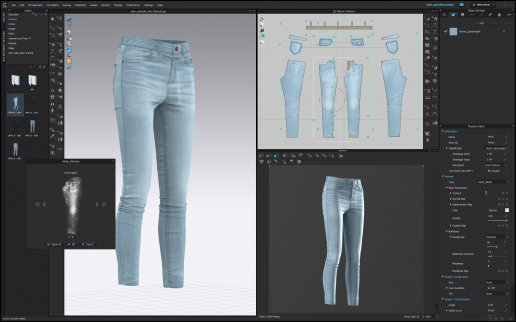
“Today more than ever we need to implement digitisation in our industry. Design, digital collection and 3D virtual reality are going to be key to recovery. With the integration of eDesigner and CLO, we are able to make the dreams of designers a reality by connecting designers with wash developers and brands with manufacturers. It will be a complete transformation in the jeans industry.”
Josep Maria Carbonell, Software Developer Director Jeanologia
Create fully customisable materials with Substance by Adobe & X-Rite AXF
Import SBSAR files by Substance, the leading software solution for 3D digital materials, allowing you to download luxury materials with infinite texture variations or create fully customisble materials from scratch or via a scan, with complete authoritative control. In addition, import AxF files by X-Rite, a tool that generates realistic fabrics via various maps extracted from 3D fabric scanning.
“We are excited to collaborate with CLO and empower designers to push the fashion industry forward with 3D technology that expands the definition of what’s possible. The Substance integration unlocks the ability to iterate on materials instantly, present photorealistic designs, and discard unwanted prototypes without any waste. CLO designers are guaranteed an unprecedented level of control and realism and we are eager to see what they will create.”
Francois Cottin, Director of 3D & AR Marketing, Adobe
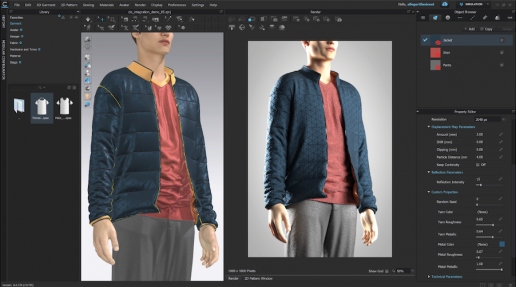
Use materials and colours of ColorDigital
Simply click and drag materials or colours from Color Digital’s DMIx cloud, and apply them to CLO’s garments.DMIx Cloud manages different forms of digitised materials, accessories and colours.
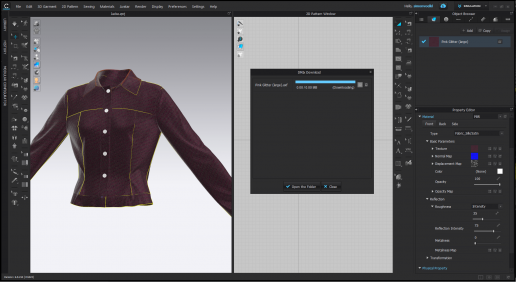
“With this partnership we enable the 3D Artist to use the libraries by their suppliers with a simple drag and drop of the material from the DMIx Cloud© directly on to their creations. This being done while keeping the full DMIx© quality in terms of color and PBR Standard based material. This enables a holistic approach of digital product development between brands and vendors on a common standard including master data, by using the most advanced raw material and trims solution in conjunction with the leading 3D garment technology.”
Gerd Willschütz, COO, ColorDigital
Be curious about the innovations that will be presented at our upcoming shows!
Cocccon Wins German Sustainability Award
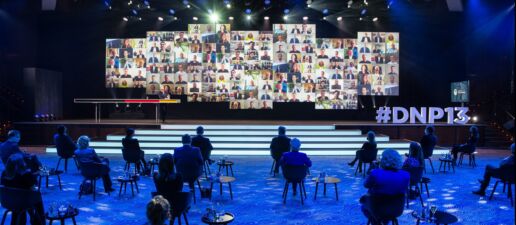
The German Sustainability Award (DNP) is the national award for top performance in the field of sustainability. The 2021 awards ceremony was held on 3 December 2020, as a hybrid event in which the finalists and the majority of the jury members were connected via live video. With nine competition categories it is the largest prize of its kind in Europe. A jury of experts selected 37 winners from 104 finalists in the new Design category which has been introduced in direct support of the United Nation’s Sustainable Development Goals.
Competing companies from the fashion and textile industry offered up a variety of sustainable solutions from recycled fashion to interiors and material development, resource-saving packaging solutions to furniture made from new materials and revolutionary waste reduction systems.
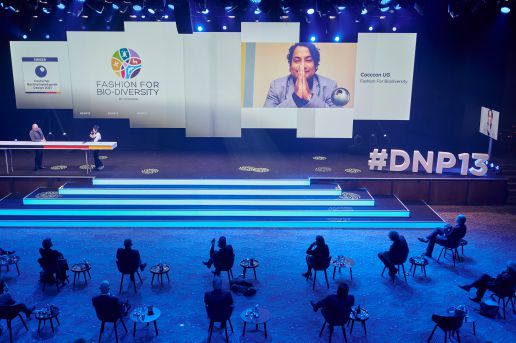
Among the winners were Cocccon, founded in 2012 by Indian designer Chanda Prakash. Recognised for pioneering “Fashion for Biodiversity” and producers of the bio-certified Peace Silk – a non-violent silk, the production of which only allows the silk threads to be extracted from the cocoons when the butterflies have already safely hatched.
“Our need to be fashionable endangers the earth’s biodiversity.
The increase in mass production has become threatening and is one of the main causes of the destruction of our ecosystems. It has also led to more frequent unexpected environmental disasters and resulting climate changes in textile producing regions.”
Cocccon designs & manufactures its textiles with the motto of creativity can care, caring for life and nature.
“We make sure that our designs do not adversely impact the environment. We converted a conventional silk farm into an organic one and processing is done in a new ecofriendly way.
This system requires less water, zero chemicals and zero emission. This has resulted in healing and revival of local biodiversity including microbes in the soil. This confirms fashion and destruction of ecology & biodiversity are not synonymous to on another. It is all about making responsible textiles for the next generations. We call this Fashion for Biodiversity.“
Chandra Prakash, Founder and Designer, Cocccon
All award winners receive a seal which is intended to help consumers determine which products and services they can consume with a clear conscience. Providing increased support for Cocccon as they continue to grow as the world’s largest producer of organic silk.
Cocccon also won second place at the 2018 HighTex Awards in Munich Fabric Start’s KEYHOUSE. This was the first time the innovation award recognised companies for their overall strategic commitment to resource saving production processes as well as innovative product development.
Cocccon were highly commended for their conscious production of luxury textiles and an innovative silk denim. The award winning GOTS-certified organic silk denim is biodegradable, with an anti-allergic finish as standard, the fabric is also handwoven and dyed using non-toxic chemicals. Prakash’s showcased the award winning Peace Silk as well as PET2Silk for the first time in Munich, which fabric shares similar qualities to silk but made of recycled PET bottles.
Prakash speaking about winning 2nd place in the 2018 HighTex Awards:
“The award is hugely important to us because it confirms our product philosophy and gives us a platform to spread the message further. We have been the world’s largest producer of organic silk for two years which constantly motivates when it comes to designing new products. The HighTex jury commended the denim-like silk shirt that requires only a fraction of water compared to conventional denim production without chemical additives.”
Chandra Prakash, Cocccon
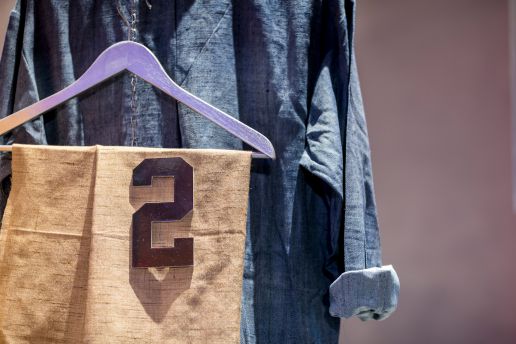
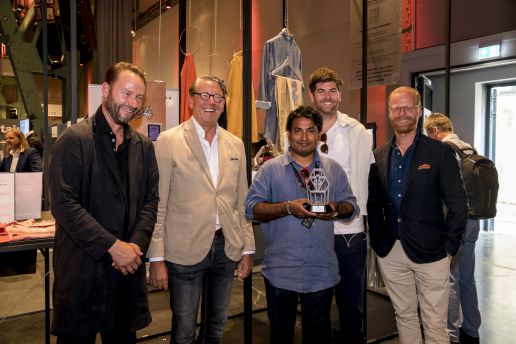

OPENING TIMES
2. MARCH 2021 · 9:30 – 18:30
3. MARCH 2021 · 9:30 – 18:30
4. MARCH 2021 · 9:30 – 16:00
LOCATION
MOC Munich | Halls 1 – 4 Groundfloor
Lilienthalallee 40
Germany, 80939, Munich
It Has Never Been Easier to Find Matching Pantone Colours
Colours are one of the most important parameters in trend analysis and the design of new collections. The right shade often only differs in nuances within the colour palette to achieve the desired colour harmony for the collection. Nowadays, we find inspiration for colours everywhere in our live: whether in nature, the food industry, interior design or beauty products.
In order to allow these colours to flow into the design process, our long-standing partner Pantone is especially addressing designers with its latest development: A platform with Pantone color libraries, color values and powerful navigation functions – always available wherever you are working with colors. The new digital color platform Pantone Connect simplifies your work and workflow by giving you access to all Pantone colors through a single-user account at any time across mobile, web, and the Adobe® Creative Cloud® applications.
“Our company has worked closely alongside creatives in the graphic, fashion, and product design industries to understand how color can become an enabler of performance rather than a hindrance. Pantone Connect’s unique combination of technology (enabled by X-Rite), features, and platform accessibility will give designers the tools they need to be confident in their color choices and ultimately successful with their creative work. They win with the Pantone Connect platform because their color choice reflects an informed decision made efficiently and communicated effectively.”
Adrián Fernández, Vice President and General Manager, Pantone
The Pantone Color Match Card
In addition to the App Pantone Connect, the new platform also includes the revolutionary Pantone Color Match Card, an innovative target in credit card size.
The Pantone Color Match Card works with your phone’s camera to measure and match coloured objects, materials, and surfaces to a Pantone Colour. With the size and portability of a credit card, this unique solution makes matching an inspirational colour to Pantone as easy as taking a photo – at accuracy levels approaching more expensive colour-reading devices. Use the Color Match Card with the Pantone Connect mobile app to capture a colour, search for a best match, and save your chosen Pantone Colour to a palette for designing later in the Pantone Connect Extension for Adobe Creative Cloud.
Together with the Pantone Connect app, you can measure the color of objects, materials and surfaces and match them with Pantone colors. Simple, portable and more accurate than color extraction from images.

Merging physical color with a digital workflow through an innovative approach, this Card-App pairing makes Pantone color identification and communication from physical inspiration to final design a streamlined, accurate, and affordable option for large dispersed design teams and freelancers alike.
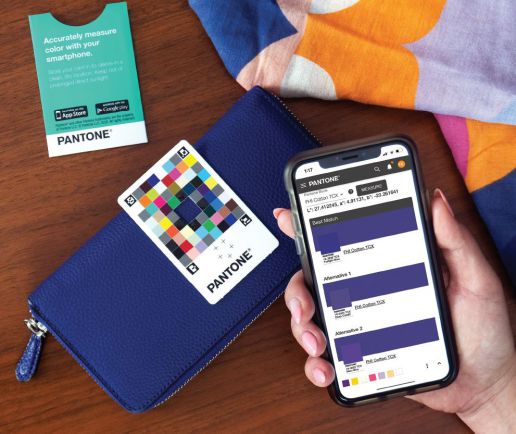
“With the Color Match Card and Pantone Connect app, a designer’s phone has now become a legitimate color capture device to match the physical world more accurately to Pantone Colors, as well as a workflow productivity tool to shorten the color communication process, at a nominal cost.”
Nick Bazarian, Senior Product Manager, Pantone Digital Solutions
With Pantone Connect, you can streamline color selection, color communication and the design process. For example, you can match physical color samples with Pantone colors, create and arrange palettes for design projects or apply Pantone colors to design files. The result is greater accuracy and less time or rework.
The software easily converts eye dropper, Hex, RGB, CMYK, and L*a*b* values to the nearest Pantone Color, meaning for fashion designers they can rapidly turn digital colour inspiration into the reality of ready-for-production.
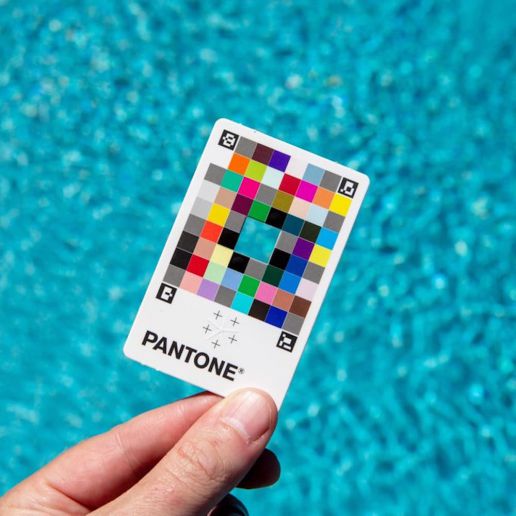
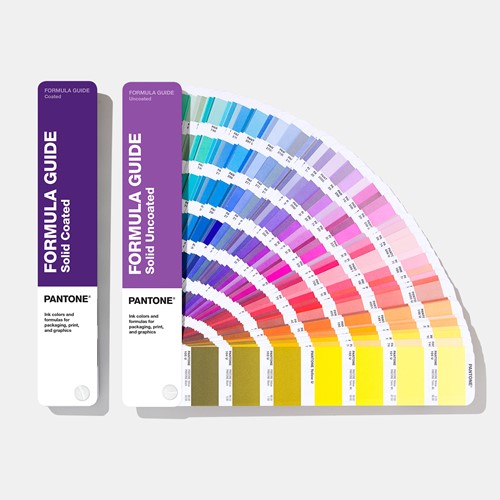
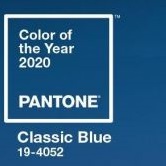
For more information on Pantone Connect and how to create a new account, visit www.pantone.com/connect. Mobile apps for iOS and Android can be downloaded from the Apple App Store and Google Play Store, respectively, while the Pantone Connect Extension for Adobe® Creative Cloud® can be downloaded from the Adobe Creative Cloud Exchange website.

OPENING TIMES
2. MARCH 2021 · 9:30 – 18:30
3. MARCH 2021 · 9:30 – 18:30
4. MARCH 2021 · 9:30 – 16:00
LOCATION
MOC Munich | Halls 1 – 4 Groundfloor
Lilienthalallee 40
Germany, 80939, Munich
7 Reasons Why You Should Continue Your Journey Despite The Pandemic
7 Reasons Why It Is Imperative You Continue Your Journey Despite The Pandemic
Article by Muchaneta Kapfunde, Founding Editor-in-Chief FashNerd.com
In these perilous times, there is no denying that the future of fashion has become uncertain. Fashion businesses, stuck between a pause and a pivot, are looking to digital, innovative and hybrid approaches to push their narratives forward. Open to new opportunities sprouting up, despite the pandemic, some fashion businesses are taking the “when life gives you lemons, make lemonade” approach, to overcome a crisis that shows no signs of stopping.
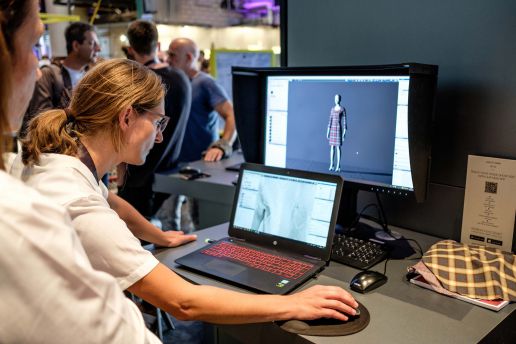
“Your body may be in quarantine, but your mind doesn’t have to be”
explained fashion designer Jeremy Scott when interviewed for Harper’s Bazaar. True, in an age where timing is everything, there are several reasons why continuing your fashion business journey during this very exceptional time is the way forward. Here are seven:
1. Take Advantage Of New Tools and New Ways of Working
It is time to adopt a more flexible mindset when it comes to technology-driven tools and finding new ways of working. Doing so will allow you to be more open to rewiring your creative development process, making navigating through troubled waters easier. Also, creating networks gives you access to resources that could help you strengthen your business and help you think outside of the box so you can welcome new tools and new ways of working with your team.
2. Now Is A Great Moment to Experiment and Try New Techniques
With social scientists making significant contributions to the field of fashion design research, this is a great moment to experiment and research new techniques that will assist you with your business. This could include finding new eco-friendly materials that you could use or using technological innovations capable of helping you design and manufacture your products more mindfully.
3. Sustainability and Consciousness Needs To Be Part Of Your DNA
The pandemic has drawn attention to why we need to have sustainability and consciousness embedded into our business’ DNA. Moreover, it has also shown that the future of fashion can no longer be built on putting profits ahead of people’s health and safety. The lesson here is that the ‘old way’ of doing business no longer works, instead steer your business strategy towards a more clean, safe, fair, transparent and accountable mindset.
4. Join The Conversation Addressing Economic and Manufacturing Realities
The emerging modern world is all about investing in tomorrow, which means that you need to think about economic and manufacturing realities. This will help you set realistic expectations in terms of product delivery and product credibility.
5. Access To Start-up Technology Innovation
From the idea of virtual showrooms to digitally produced samples and campaigns, the demand for start-up innovation is growing. The good news is that fashion businesses have more access to advanced technology than a year ago. Companies that are adopting innovation can reimagine a new direction and head towards it.
6. Transparency is Slowly Becoming The Norm
COVID-19 has highlighted the significance of brand transparency. Before the pandemic, being transparent was a choice; now, it is a necessity. Brands are currently being held accountable for their environmental practices, so the way forward would be to disclose your policies and commitments when it comes to social and ecological issues.
7. Represent The Next Normal
With so much going on, all businesses should be driven by a need to make a positive contribution to the decision-making process that will shape the future of fashion. Doing so will differentiate you from other fashion businesses and prepare you for what is most likely going to be the next normal.
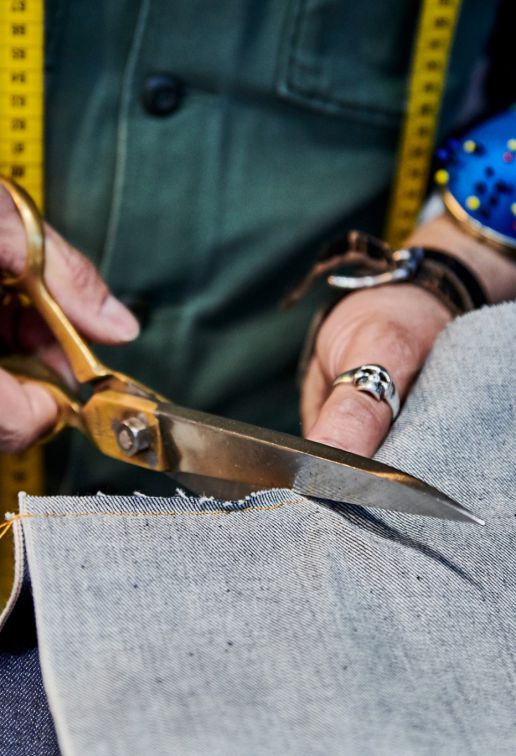

OPENING TIMES
2. MARCH 2021 · 9:30 – 18:30
3. MARCH 2021 · 9:30 – 18:30
4. MARCH 2021 · 9:30 – 16:00
LOCATION
MOC Munich | Halls 1 – 4 Groundfloor
Lilienthalallee 40
Germany, 80939, Munich
Denim, Sportswear & Innovations Exhibitors at FABRIC DAYS

FABRIC DAYS will take place from 1 – 3 September 2020 at MOC Munich. In the four fully booked halls on the ground floor of the MOC, around 300 German and European exhibitors in 5 segments will present their new developments for Autumn.Winter 21/22 in around 700 collections. Among the international exhibitors who have confirmed their FABRIC DAYS participation are also many premium suppliers who will present their novelties in the Denim, Sportswear and Innovations areas.
Register today for FABRIC DAYS – your chance to meet your suppliers in person again and gather trend information and inspiration in addition to the latest developments. Discover some of the participating Denim, Sportswear & Innovations exhibitors here:
DENIM & SPORTSWEAR
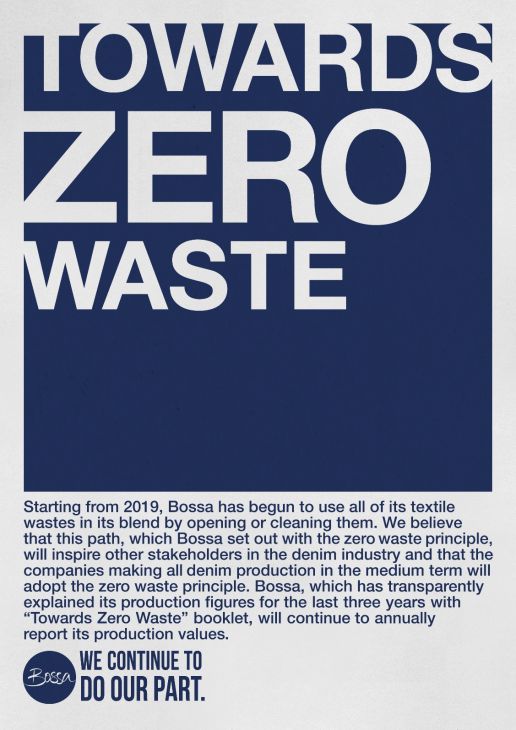
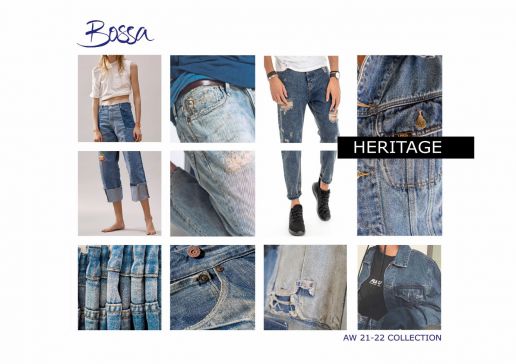
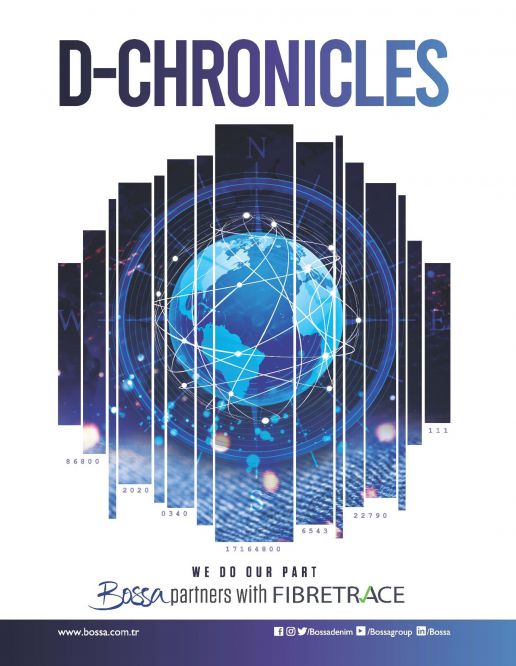
Bossa strives to promote responsible change in the industry. With the D-CHRONICLES concept, a collaboration between Bossa and Fibretrace, Bossa views the future of sustainability as: transparency, trust and traceability. The concept uses the blockchain based ID system by Fibretrace technology, which follows a product from farm to shelf and chronicles its history securely with blockchain. Bossa, which has transparently detailed its production figures for the last three years with “Towards Zero Waste” booklet, will continue to report its production values annually. The Turkish textile company has increased the use of recycled fibers in the raw material blend required for denim fabric and is starting to use all of its textile waste in its blends by restructuring or cleaning them which are next steps “Towards Zero Waste”.
The Autumn.Winter 21/22 collection at Bossa is divided into 5 groups: The first concept, “Heritage”, is inspired by denim origins in combination with technology innovation. The super soft and performance denims of the second concept “Workout” bridge the gap between regular denim and active wear. The “Luxury shades” concept includes premium denims with natural elegance through new fibers, clean surfaces, draping and silhouettes. Timeless jeans in dark tones are presented in the forth concept “Dark Side”. Bossa created different denim combinations with warm colours for cold days in the fifth concept “Fall in Love”.

The Kilim Denim Autumn.Winter 21/22 collection focuses on combining new shades and trendy finishes with functional and innovative solutions. Developing new collections involves research and challenging the boundaries of design and technology. With every season, Kilim Denim operates under high environmental and social standards. The Turkish weaving factory highlights the “Vintage Core” and “Shape Core” collections that present high elasticity with trendy looks. The “1986” and “Ageless” collections reflect the vintage and positive sense of the 80s and 90s era. The “Recreate” collection is produced from recycled yarns due to Kilim Denim’s confidence in a circular economy and acute responsibility to use resources respectfully. The newly developed Cactus process, which is certified by Intertek, also minimizes water usage.
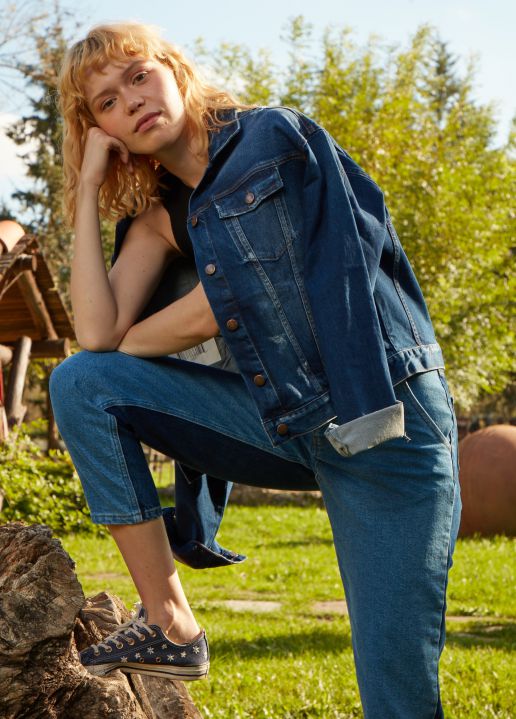
From the makers of DRY INDIGO® comes… DRY BLACK®, the Sustainable Denim Revolution now available in black! After the development and launch of Dry Indigo® – a unique foam dyeing technology that allows to dye Indigo Yarn with zero water – Tejidos Royo decided to go one step further. After more than a year of R&D, Tejidos Royo has managed to adapt the revolutionary foam dyeing technology to Black Denim. Tejidos Royo is now able to dye denim in sulphur black with no water usage in the dyeing process, and more importantly, no need to clean the water after dyeing. The Spanish fabric manufacturer is able to control the sulfur, the intensity and the fixation of the colour. DRY BLACK® is certified by the Textile Research Institute AITEX as an eco and sustainable Black Yarn Dyeing process. The achievement of this technology: 99% less water usage in dyeing, 52% less chemical usage, 72% reduced energy usage, 0% water discharge. Tejidos Royo always bets on innovation and 360º sustainability. “Our goal is to give the market the best product without permanent harmful effects for the environment. We develop trendy, innovative and sustainable fabrics. We create fabrics with values and this pioneering and ecological technology DRY DYE is the way to revolutionize the global production of denim.” DRY BLACK® – BLACK TO THE FUTURE.
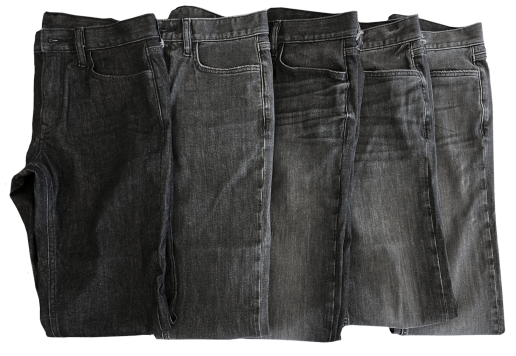
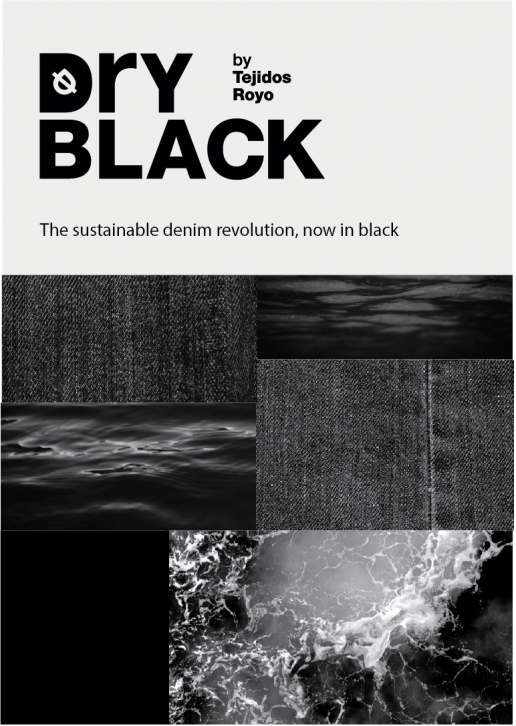

INNOVATIONS
RenTec.one specialise in the renaturation of leather scraps from the tanning industry. The processes eliminate up to 95% of the received leather waste and transform the raw materials into various re-useable forms: yarns, woven fabrics or textiles for direct cutting. Due to the chemical and physiological properties of collagen in leather and the separation of remaining fat content, the RenTec.one leather yarns contain a natural sanitizing property, which notably helps to cure neuritis, neurodermitis, foot cracks and stench.
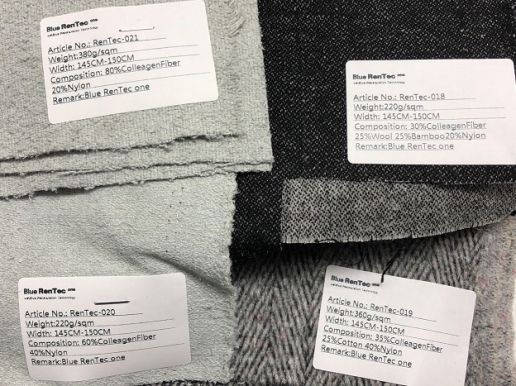
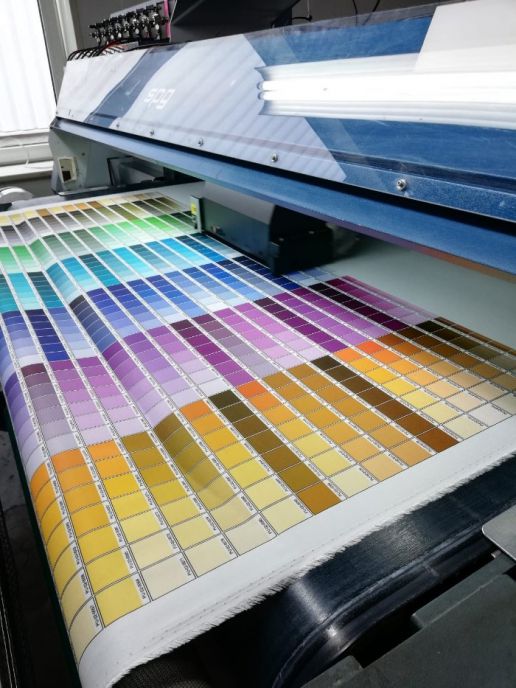
House of U, a digital textile printing company based in the Netherlands, has been working to tackle their chemical, water, and energy consumption in addition to offering a wide range of sustainable materials to print on. The print house introduces low impact printing with the aim to achieve bold colours while phasing out harmful chemicals – and thus helps clients achieve rich and deep colours by using certified inks on a wide range of sustainable fabrics. With an online platform and digital colour management, House of U offers designers creative freedom to product their high-quality prints. Customers can upload their designs online, pick the fabric of their choice and order without any minimum order quantity. The company’s processes and methods consist of pre-treatment, printing, and the finishing of the materials. House of U’s digital printing method reduces water consumption by 70% in comparison to screen printing. All inks used in the printing process of natural fibres are GOTS certified, water-based inks. This applies to all chemicals used in the pre-treatment of the fabrics (coating) and in the post treatment (after printing).
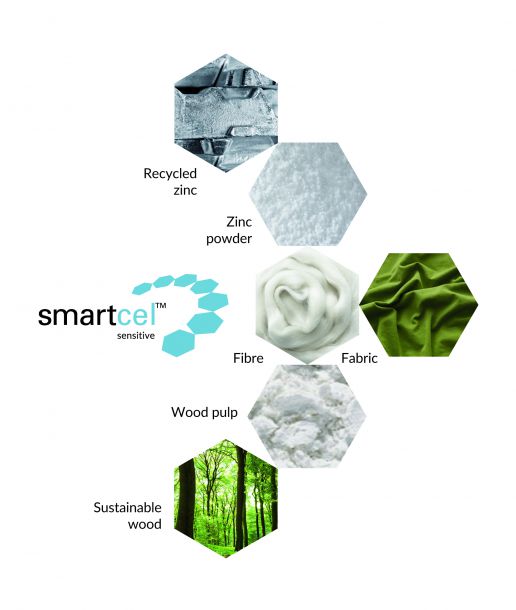
For more than 15 years smartfiber AG offers high quality, skin-friendly natural fibers for sustainable textiles with the name SeaCell™ and smartcel™ sensitive. Thanks to the natural additives algae or zinc the fibers of smartfiber AG are the basis of numerous fashion and home textiles for international brands which consider sustainability as a matter of course. The fibers are based on cellulose. Due to the additives from algae in SeaCell™ or zinc in smartcel™ sensitive the fibers gain extraordinary properties. Thus, the fibers are particularly skin-friendly and stand for environmental friendliness and saving resources.
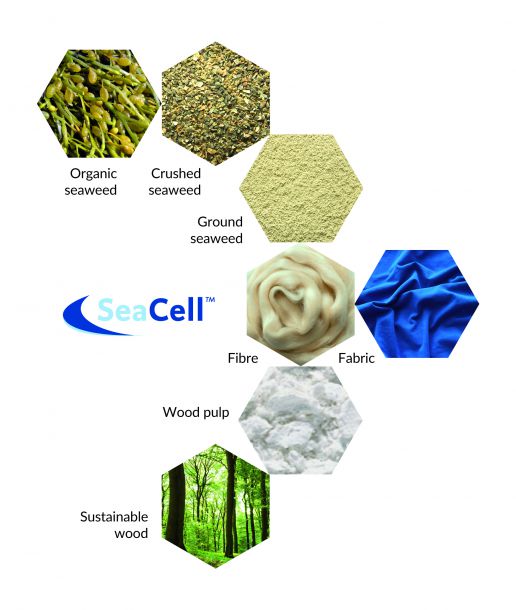
FABRIC DAYS AUTUMN.WINTER 21/22
OPENING HOURS
1 SEPTEMBER 2020 · 9.30 AM – 6.30 PM
2 SEPTEMBER 2020 · 9.30 AM – 6.30 PM
3 SEPTEMBER 2020 · 9.30 AM – 4.00 PM
LOCATION
MOC Munich | Halls 1 – 4 Ground Floor
Lilienthalallee 40
D – 80939 Munich
Disruption and Transformation in the Textile Value Chain
In the February edition of MUNICH FABRIC START, KEYHOUSE hosted an expert led panel discussion, merging their collective knowledge and experience under the topic, ‘Future Textile Supply Chain – Disruption and transformation through sustainability and networking in the textile value chain’. Moderated by Jana Kern & Alex Vogt of KERN.Consulting with Prof. Dr. Michael Braungart (Braungart EPEA), David Shah (View Publications), Hans H. Jung (Unity AG) and Dr. David Schmelzeisen (RWTH Aachen).
The fashion industry is currently facing unprecedented challenges as a result of COVID-19, especially critical are those concerning the global supply chain. Change is accelerated during these times and it has become crucially important to share our collective knowledge and expertise in order to develop positive, future proof solutions. On the KEYHOUSE stage, our industry experts exchanged their thoughts and expertise, offering their unique insights and key points for further action and reflection.
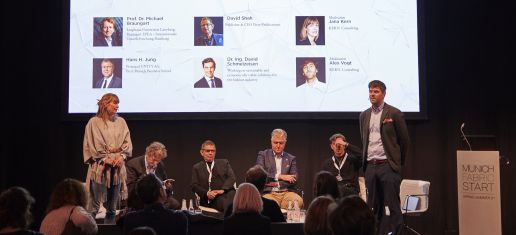
How attractive has the option of localisation become to companies?
While local production may look like an attractive alternative that could perhaps satisfy a growing standard of consciousness and need to keep up with demand, it is problematic because companies will always seek out the cheapest option, said David Shah as he offered a further insight:
“Turkey will become the new ‘China’ to Europe, just as Mexico will become the new ‘China’ for America.”
On the one hand, there are the typical pressures demanded from the point of view of the manufacturer which will always exists, such as; speed, price, product diversity, range and lifespan, speed of delivery as well as waste reduction. However on the other hand there is now a need to satisfy the consumer demand for those who are seeking a more meaningful experience, individuality and faster to market which is almost counterintuitive.
To what extent will consumer demand for sustainable manufacturing shape current business practices?
While fashion movements, professionals and activists advocate for greater transparency and traceability which can ideally change this damaging mind-set mentioned previously, panellist David Schmelzeisen believes it is still the case that the majority of end consumers want faster change times but at the same time lower prices. He believes that the controlling power does not yet lie with the conscious consumer, adding:
“We need to be more flexible and that is where digital technology comes in and why we will see a lot of changes in the future. For this we need smaller MOQ’s (Minimum Order Quantities) which is leading producers to look for new digital and technical solutions as well as new design solutions.”
How can digitisation provide a solution for more accurate production quantities?
Digitisation is transforming the entire supply chain, the connection between production and actual customer demand is getting closer. Hans Jung believes digital tools offer the unique opportunity to learn what the customer wants, such as with customer interface throughout all the different stages of usage, acting as a systematic feedback loop for optimisation. He states
“Production industries are now evolving and adding additional functions in a much more sustainable way than in the past.”
How crucial is the practice of circularity for the textiles industry in the future?
Circularity is crucial to the future of our industry and it should be explored as there is a lot of opportunity to build on this kind of system within the textile industry. Michael Braungart strongly believes the future lies in opening up the circular processes and materials which conventionally may be contained to only the textile industry. As these may have other relevant applications in production industries across various stages of the process and thus increasing the effectiveness of circularity. He also shared his crucial opinion that where brands use smart textiles, there must be an equally smart effort to communicate with the consumer. It is important to educate the consumer on how to use the product better for circularity to truly be in effect.
Want to know more? Watch the full discussion now available on our YouTube channel.


